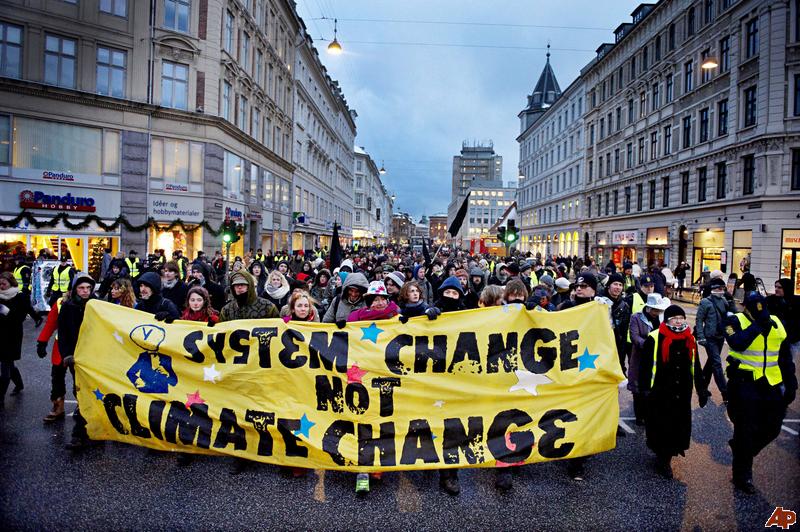After years of setbacks, Duke Energy decided to cut the Levy Nuclear Project in Levy, Florida in September 2017 . Instead, they decided to build solar panels to appease the growing demand of renewable energy in the United States. This sounds like a huge win for the climate justice movement, right? In a sense, yes– the short term effects are certainly positive. However, this does nothing to stop the capitalist system that has caused the issues in the first place.
We often find ourselves engaged in surface level solutions that do nothing but give us peace of mind, this phenomenon only subverts our attention towards solutions that only uphold capitalism. Examples of this so-called “green” capitalism can look like recycling, buying from vegan supermarkets, buying Priuses, or accepting the privatization of renewable energies. No form of capitalism will ever be sustainable or environmentally friendly and this is because capitalism exists in a cycle of accumulation in which the capitalist entity must gain wealth and then acquire commodity (using the original wealth) that can be sold at a higher price. The nature of the system is to accumulate an infinite amount of resources on our finite planet. In a competitive market an actor must constantly grow to participate in said market and in doing so will over accumulate as a by-product. The demand of capitalism will reach as far as possible to survive on resources until it can no longer grow and that in and of itself proves the unsustainable nature of the existence of capitalism and it’s demand.
Green capitalism is the foundation of liberal environmentalism. These pseudo-environmentalists can very easily feel a sense of superiority over those they feel aren’t “doing their part.” If doing our part means being vegan, riding a bike, and being an obsessive recycler then, unfortunately that isn’t sufficient. While these practices help you from being perceived as a hypocrite, they don’t actually do anything for the movement itself. Look towards the mantra adopted by some of the more radical environmentalists; “System change, not climate change”. This is an extraordinarily important distinction and priorities must be adjusted in order to make a difference. A lifestyle change is good for causing a ripple effect and having close friends or family members become aware to the cause but overall outcomes of these actions have been proven to be ineffective at the scale we need. It also allows people to act as if this is a sufficient amount of work to put in, which is lazy and unmotivated.
What does this mantra, “System change, not climate change” mean? It means that the problem lies on a structural level, this structure is rooted in capitalism and tied to government implemented austerity measures. A government that focuses on the well being of capitalism and private corporations over the condition of living and the planet will continuously do so until the fall of capitalism or until said government is dismantled (as all unnecessary power structures should be.) The only solution is a change at the base of the system, one that will bring about a form of government that will place the importance and power in the hands of the people at the municipal level. Decisions and ownership should be within the community as the community knows what they need more than any federal actor. A community won’t pass laws that will otherwise harm or negatively affect those in their own community, whereas a federal government is more than willing to push laws that would be detrimental to a community or to the biosphere.
Public ownership of surplus and labor is also a must. The public deserves the right to produce energy and work without exploitation of labor. Whether or not there are markets without capitalism is purely hypothetical but the fact is that renewable energy needs to be available and free no matter the circumstances. Mass transportation must be free in order to slow manufacturing on unnecessary vehicles and offer transportation to people who need it. Funding needs to be directed towards conservation and scientific research to progress towards automated technology assisting our daily lives.
We can’t continue on the path paved by capitalism and over consumption. The solution doesn’t lie in a change made on an individual basis but rather in overturning the entire current system. A system that created a culture to turn people against socialism, the most environmental and humanitarian socioeconomic structure, in defense of capitalism. A paradigm shift away from this distaste for socialism, a focus on environmentalism and the well-being of others is our solution to climate change, not capitalism disguising itself as somehow environmentally friendly, when it survives on accumulation and exploitation of resources.

